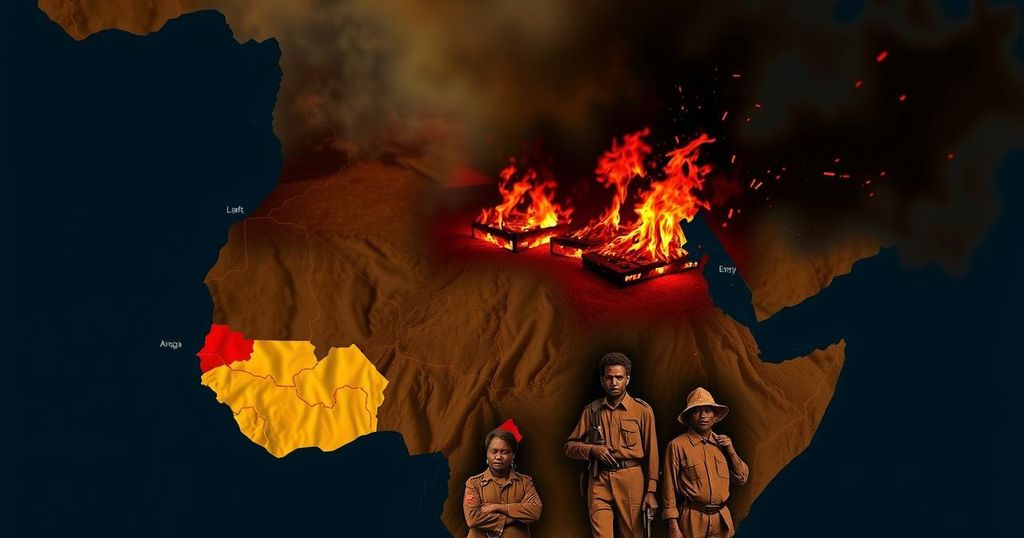Post-Election Violence in Mozambique: Implications for Regional Stability in Southern Africa

Mozambique’s recent election has resulted in widespread protests and violence after the ruling Frelimo party was accused of electoral fraud. At least 30 individuals have died amid escalating conflicts. The situation raises serious concerns for Southern Africa, as regional trade routes are affected by the unrest, calling for urgent attention from neighboring nations regarding political stability and democratic integrity.
The recent protests in Mozambique, ignited by the disputed results of the October 9 elections, have escalated into a concerning wave of violence and unrest. The ruling Frelimo party, which has maintained power for 49 years, faced accusations of electoral fraud following the announcement of Daniel Chapo as the election winner. With at least 30 fatalities reported, these events highlight the fragility of democratic processes in the region and the potential for unrest to disrupt stability across Southern Africa. Protests have persisted in Mozambique’s capital, Maputo, with demonstrators challenging the validity of the election outcomes and calling for accountability. As regional stakeholders focus on maintaining political stability, Mozambique’s electoral disputes draw parallels with challenges faced by other nations, such as Zimbabwe. International observers, including the European Union, noted significant irregularities in the voting process. The ramifications of Mozambique’s turmoil are poised to feature prominently in upcoming discussions among Southern African leaders. Additionally, the interconnectedness of regional economies underscores the urgency of stabilizing Mozambique. Its borders with several Southern African countries, including South Africa and Tanzania, facilitate vital trade routes. Post-election violence prompted South Africa to close its border to contain the unrest, causing considerable economic impacts, particularly for industries reliant on the port of Maputo. The closure reportedly incurs daily losses of approximately R10 million for the South African economy, emphasizing the far-reaching consequences of Mozambique’s political instability. Moreover, Mozambique continues to deal with lasting scars from a lengthy civil war and ongoing economic challenges, including a persistent threat from insurgent groups in the north. The return of internally displaced persons remains a delicate issue, as many return to communities that have been ravaged by violence. As neighboring nations already grapple with migration challenges, continued unrest in Mozambique threatens to exacerbate these situations, prompting an urgent call for diplomatic and humanitarian intervention to restore order and peace. In the broader landscape, a handful of Southern African countries have managed to conduct successful transitions of power following credible elections. The recent political shifts in Botswana and South Africa demonstrate that democratic progression is achievable; however, Mozambique’s ongoing crisis poses serious risks to regional stability, underscoring the necessity for concerted efforts towards promoting democratic norms and conflict resolution.
Mozambique recently experienced elections in October 2024, which have been marred by allegations of electoral fraud and violence following the announcement of the ruling party Frelimo’s continued dominance. These events have sparked significant civil unrest, raising concerns about the implications for political stability in Southern Africa. Alluding to a broader pattern of contested elections across the region, the situation necessitates an urgent assessment of neighboring countries’ responses and strategies for ensuring the resilience of democratic institutions and the safety of their citizenry.
The violence following the election results in Mozambique remains a pressing issue for Southern Africa. The potential for regional instability due to Mozambique’s disputes underlines the need for strategic diplomatic engagement and effective management of economic interdependence. The current unrest has wider implications not only for Mozambique but also for its neighbors, emphasizing the necessity for immediate and concerted measures to promote peace and stabilize the region.
Original Source: apnews.com







